Planning a wedding can be a daunting task, with so many details to consider and decisions to make. One of the most important aspects of a successful wedding day is having a well-organized schedule. A wedding schedule can help ensure that everything runs smoothly and according to plan, from the moment the bride and groom start getting ready to the last dance at the reception.
In this article, we will discuss what a wedding schedule is, why it is important, how to create one, and provide some examples and tips for a successful wedding day.
What is a Wedding Schedule?
A wedding schedule is a detailed plan that outlines the events and activities that will take place on the wedding day. It includes specific timings and locations for each event, from the moment the bride and groom start getting ready to the end of the reception. This schedule serves as a guide for the bride, groom, wedding party, and vendors to ensure that everyone is on the same page and knows what to expect.
A well-structured wedding schedule can help reduce stress and confusion on the wedding day, allowing everyone involved to focus on enjoying the moment and creating lasting memories.
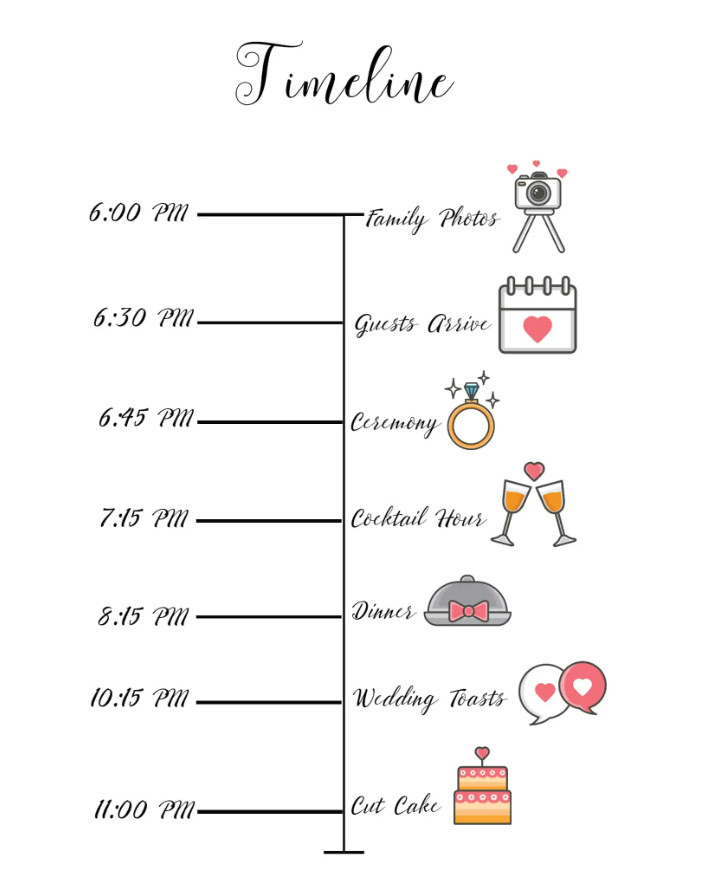
Why is a Wedding Schedule Important?
A wedding schedule is important for several reasons:
- Organization: It helps keep everything on track and ensures that all the important events and activities are properly planned and executed.
- Communication: It serves as a communication tool, ensuring that everyone involved in the wedding, including the bride, groom, wedding party, and vendors, is aware of the schedule and knows their roles and responsibilities.
- Time Management: It helps manage time effectively, ensuring that each event has enough time allocated and that there is no unnecessary delay or rush.
- Coordination: It allows for better coordination between different vendors and service providers, such as the photographer, caterer, and DJ, ensuring that they are all aware of the schedule and can work together seamlessly.
How to Create a Wedding Schedule
Creating a wedding schedule may seem like a daunting task, but with careful planning and organization, it can be a relatively simple process. Here are some steps to help you create your wedding schedule:
1. Determine the Timeline
Start by determining the overall timeline of your wedding day. Consider the time you want the ceremony to start, the duration of the reception, and any other events or activities you have planned, such as a cocktail hour or a send-off. This will serve as the foundation for your schedule.
2. Break it Down
Once you have the overall timeline, break it down into smaller segments or events. For example, you may have segments for getting ready, the ceremony, the reception, and any other activities you have planned. Assign specific timings to each segment.
3. Consider Travel Time
When creating your schedule, don’t forget to consider travel time between different locations. If you are getting ready at a separate location from the ceremony venue, make sure to allocate enough time for travel.
4. Consult with Vendors
Reach out to your vendors, such as the photographer, caterer, and DJ, and discuss the schedule with them. They may have specific requirements or suggestions that you need to consider. Make sure to incorporate their input into your schedule.
5. Share the Schedule
Once you have finalized your wedding schedule, share it with all the relevant parties, including the wedding party, vendors, and anyone else who needs to be aware of the schedule. Make sure everyone has a copy and understands their roles and responsibilities.
Examples of Wedding Schedules
Here are a few examples of how a wedding schedule can be structured:
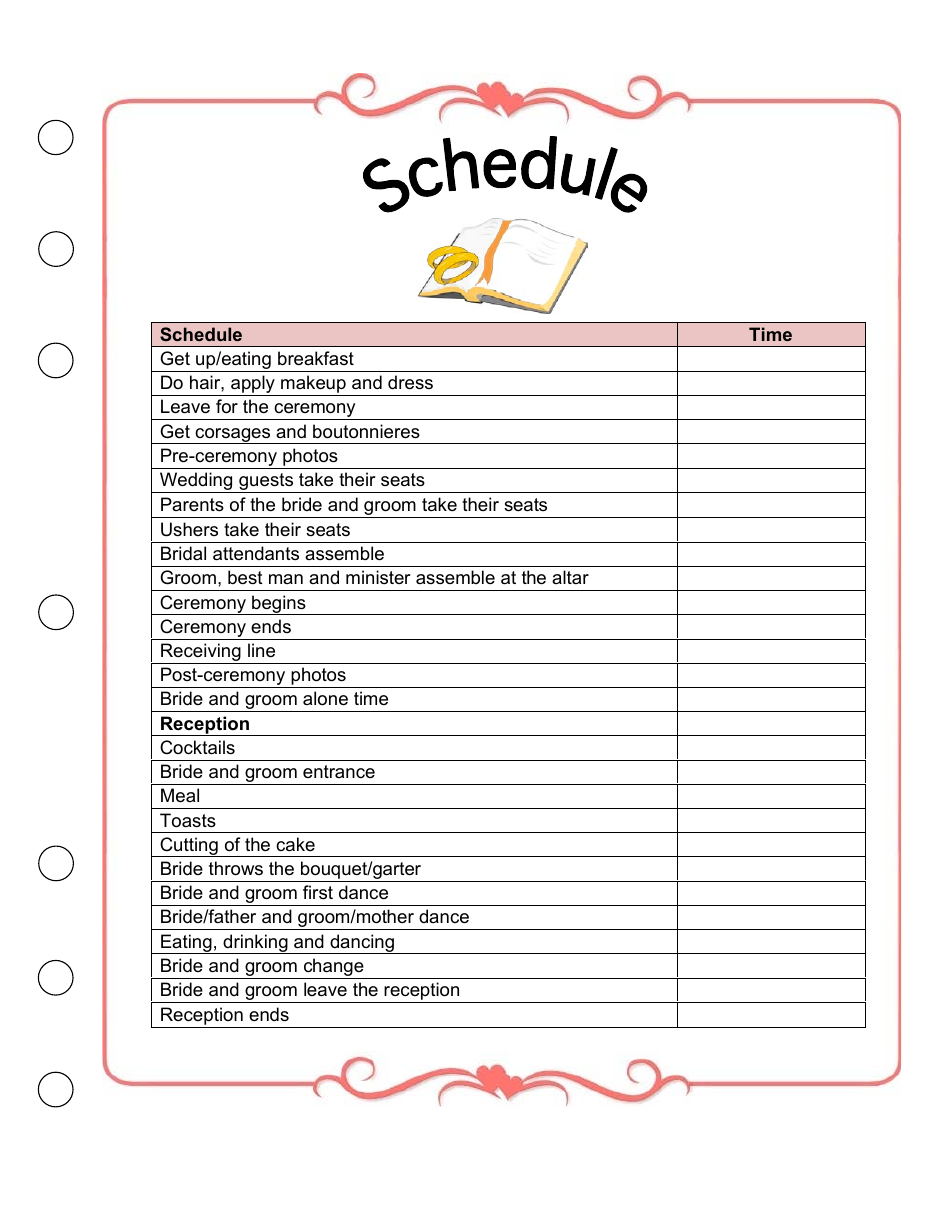
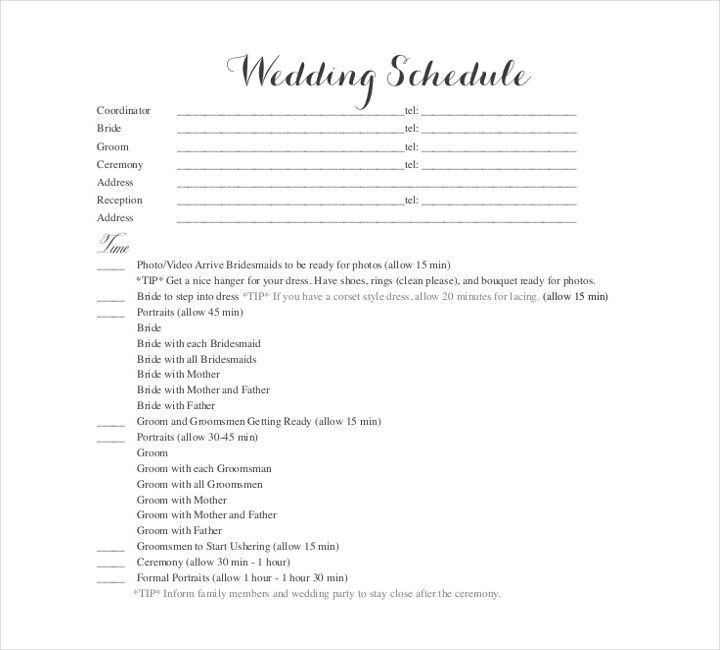
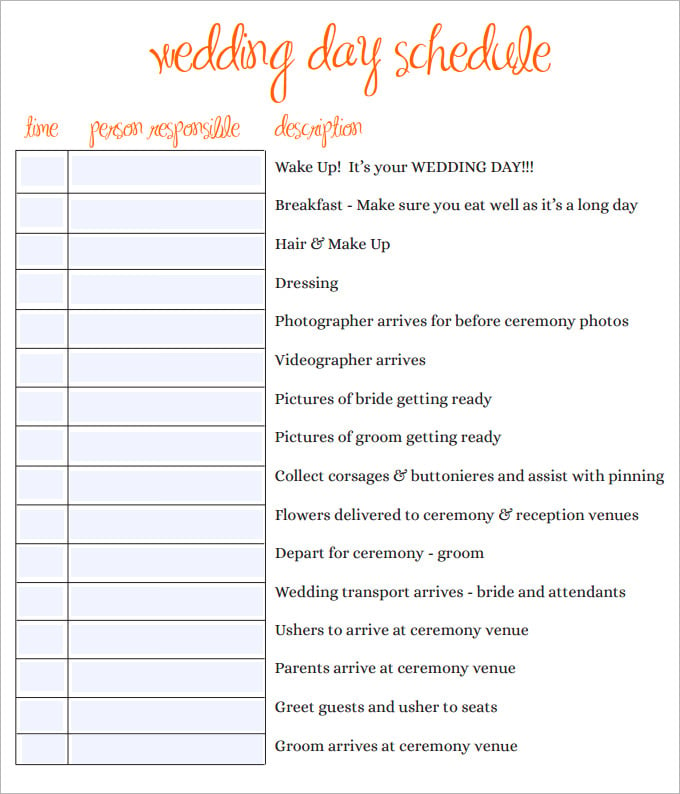
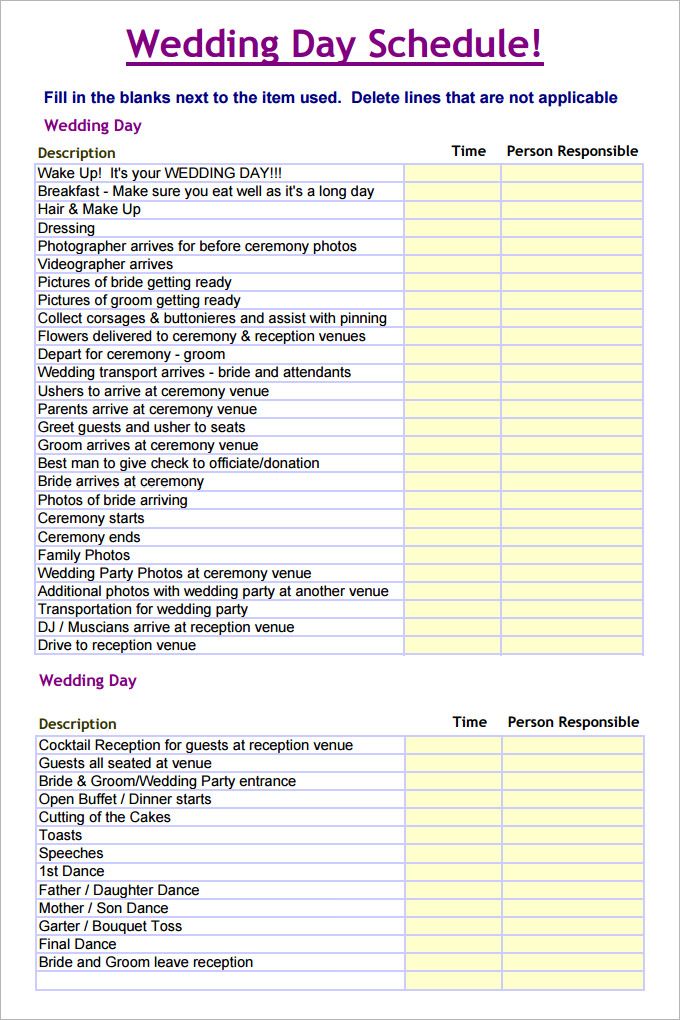
Tips for a Successful Wedding Day
Here are some tips to help you have a successful wedding day:
- Delegate: Don’t try to do everything yourself. Delegate tasks to trusted family members, friends, or a wedding planner to ensure that everything runs smoothly.
- Have a Backup Plan: Prepare for unexpected situations by having a backup plan in case of bad weather, transportation issues, or any other unforeseen circumstances.
- Stay Hydrated and Well-Rested: Take care of yourself leading up to the wedding day by getting enough sleep and staying hydrated. This will help you look and feel your best.
- Enjoy the Moment: Remember to take a moment to step back and enjoy the day. It goes by quickly, so savor every precious moment.
Conclusion
A wedding schedule is an essential tool for ensuring a smooth and organized wedding day. It helps keep everyone on track, manages time effectively, and allows for better coordination between different vendors and service providers.
By following the steps outlined in this article and incorporating some of the tips provided, you can create a wedding schedule that will help make your wedding day a memorable and stress-free experience.
Wedding Schedule Template – Download